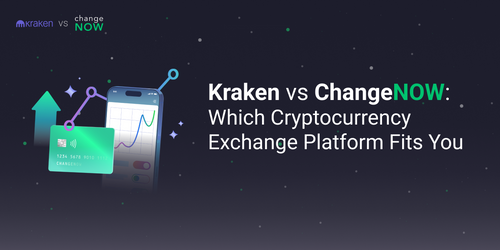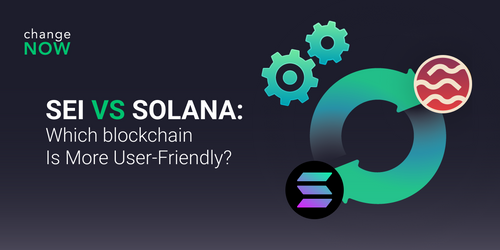The Future of NFTs in 2025 — Market Insights & Use Cases

The NFT market, once characterized by meteoric rises and sudden falls, continues to evolve, reflecting broader trends in digital assets and blockchain technology. After peaking during the pandemic with sales reaching billions of dollars, the market experienced a significant downturn. However, recent developments suggest a potential resurgence and transformation in the use and perception of NFTs.
What is NFT
An NFT, or Non-Fungible Token, is a unique digital asset that represents ownership of a specific item or piece of content, often tied to digital art, collectibles, music, videos, or virtual real estate. Unlike cryptocurrencies such as Bitcoin or Ethereum, which are fungible and can be exchanged on a one-to-one basis, NFTs are indivisible and irreplaceable, giving them their unique value.
Each NFT is stored on a blockchain, a decentralized digital ledger that ensures the authenticity and provenance of the asset. The most popular blockchain for NFTs is Ethereum, which uses smart contracts to manage the ownership and transfer of these tokens. NFTs have gained significant attention in various industries, including gaming, online entertainment, and digital collectibles, where they are used to create, buy, sell, and trade unique virtual items. This technology enables artists and creators to monetize their work directly, fostering a new digital economy centered around scarcity and ownership of digital goods.
What Affected the NFT Market
Market Dynamics: NFT sales skyrocketed during the pandemic, extending beyond digital art to sectors like music, gaming, and virtual real estate. This surge was driven by the novelty and speculative allure of NFTs, with some pieces fetching millions of dollars. However, as the initial excitement waned and market saturation set in, the NFT market faced a significant decline.
Economic Factors: The decline was exacerbated by broader economic conditions, including higher inflation, increased interest rates, and a general tightening of monetary policy post-pandemic. These factors led to a decrease in disposable income and a reduced appetite for high-risk investments like NFTs. The downturn in the cryptocurrency market, closely tied to NFTs, further contributed to reduced investor interest and purchasing power.
Impact of Key Events: The collapse of major crypto projects like Terra Luna and the bankruptcy of FTX significantly eroded investor confidence in the digital asset space. These events highlighted the volatility and risks inherent in emerging asset classes, causing a liquidity crunch in the NFT market.
Emerging Trends and Future Prospects
Despite the challenges, several trends indicate a promising future for NFTs:
Utility Over Speculation: Experts argue that the long-term value of NFTs lies in their utility rather than their speculative potential. The ability to provide proof of ownership, digital identity, and asset tokenization offers practical applications across various industries. For instance, NFTs are being used in real estate to streamline transactions and in gaming to enhance player experiences.
Integration with Emerging Technologies: The integration of NFTs with augmented reality (AR) and virtual reality (VR) is creating new opportunities for digital ownership and interaction. In the metaverse, NFTs can represent digital assets, offering users unique ways to interact with and own virtual goods.
Corporate Adoption: Major brands like Nike, Puma, and McDonald's have embraced NFTs, releasing digital collectibles that offer real-world utility and value. This corporate adoption is driving mainstream acceptance and showcasing the potential for NFTs beyond speculative investments.
Gaming Industry Integration: The gaming industry is poised to be a significant driver of NFT growth in 2024. Companies are integrating NFTs into their games, creating more immersive and engaging experiences.
Industry Insights
Jason Lau, Chief Innovation Officer at OKX, predicts that 2024 will see a new wave of Web3-enabled games that use NFTs to provide greater engagement and new business models. This shift marks a departure from early NFT games, which often relied on the novelty of NFTs rather than integrating them into compelling gameplay.
Anthony Georgiades, a general partner at Innovating Capital, observed that the NFT market has experienced a boom-bust hype cycle, with many profile picture collections skyrocketing, crashing, and failing to recover. Despite this, he noted that several quality collections have thrived and seem poised to endure in the long term. Georgiades believes that the popularity of digital art will help sustain this aspect of NFTs.
Conversely, some experts are skeptical about a complete revival of the NFT market. Ilya Stadnik, CEO of Zent, stated that the overwhelming influx of low-value images will not recur. He mentioned that while NFTs can sometimes be a worthwhile investment, it requires meticulous selection. Stadnik emphasized that the vast majority, about 99.9%, are not worth considering. Despite his doubts about a market resurgence, he remains hopeful that emerging technologies will transform the NFT market and facilitate its integration into sectors such as gaming and online entertainment.
Conclusion
While the NFT market has faced significant challenges, its foundational technology and diverse applications suggest a resilient and evolving future. As the market matures, focusing on practical utility, sustainability, and integration with emerging technologies will likely drive the next phase of NFT adoption. NFTs are not just a fleeting trend but a transformative force with the potential to redefine digital ownership and interaction in the years to come.
Disclaimer: ChangeNOW does not provide financial advice. The information provided in our articles and other content is for informational purposes only and should not be considered financial, investment, or other professional advice. Always do your own research before making any investment decisions.



